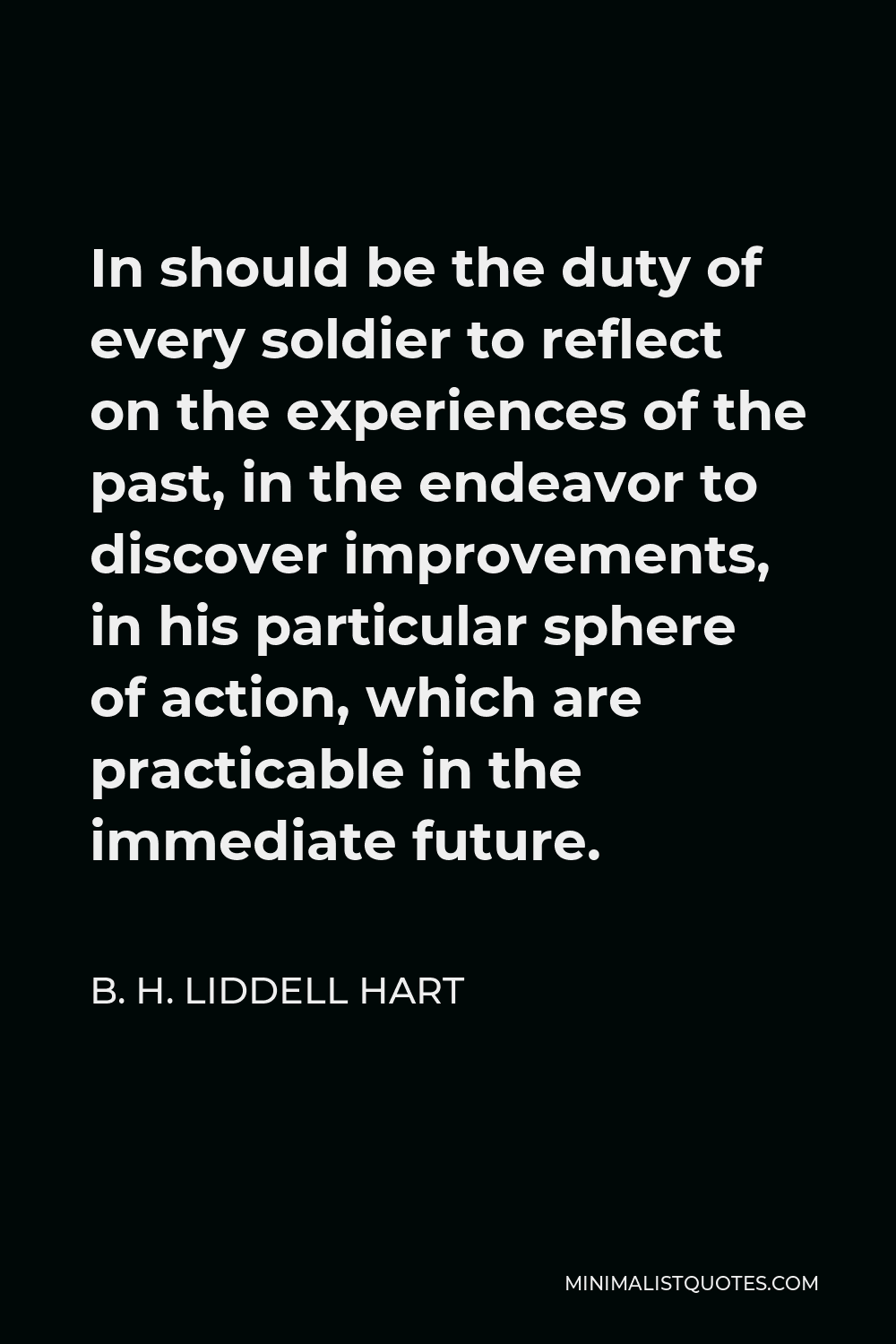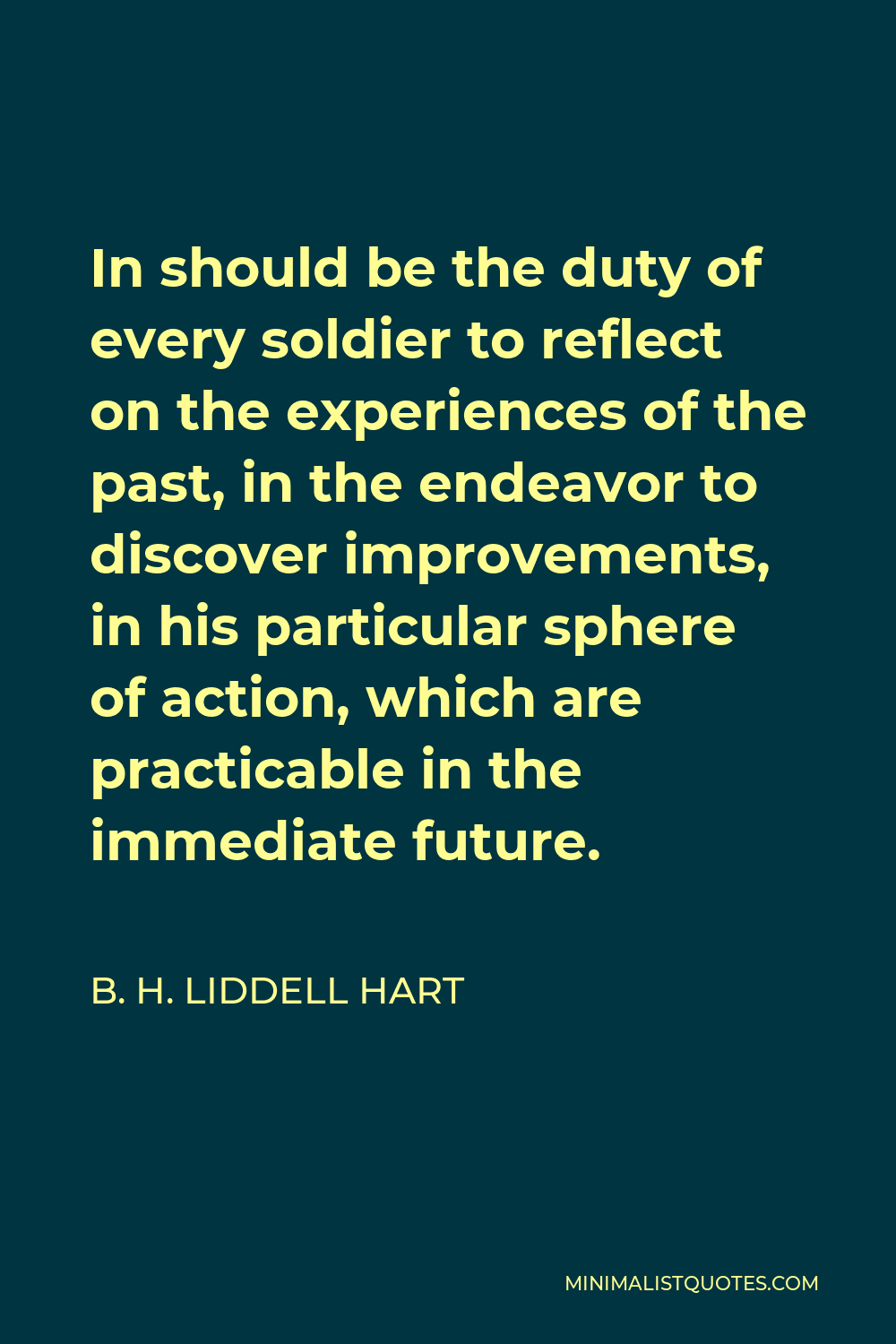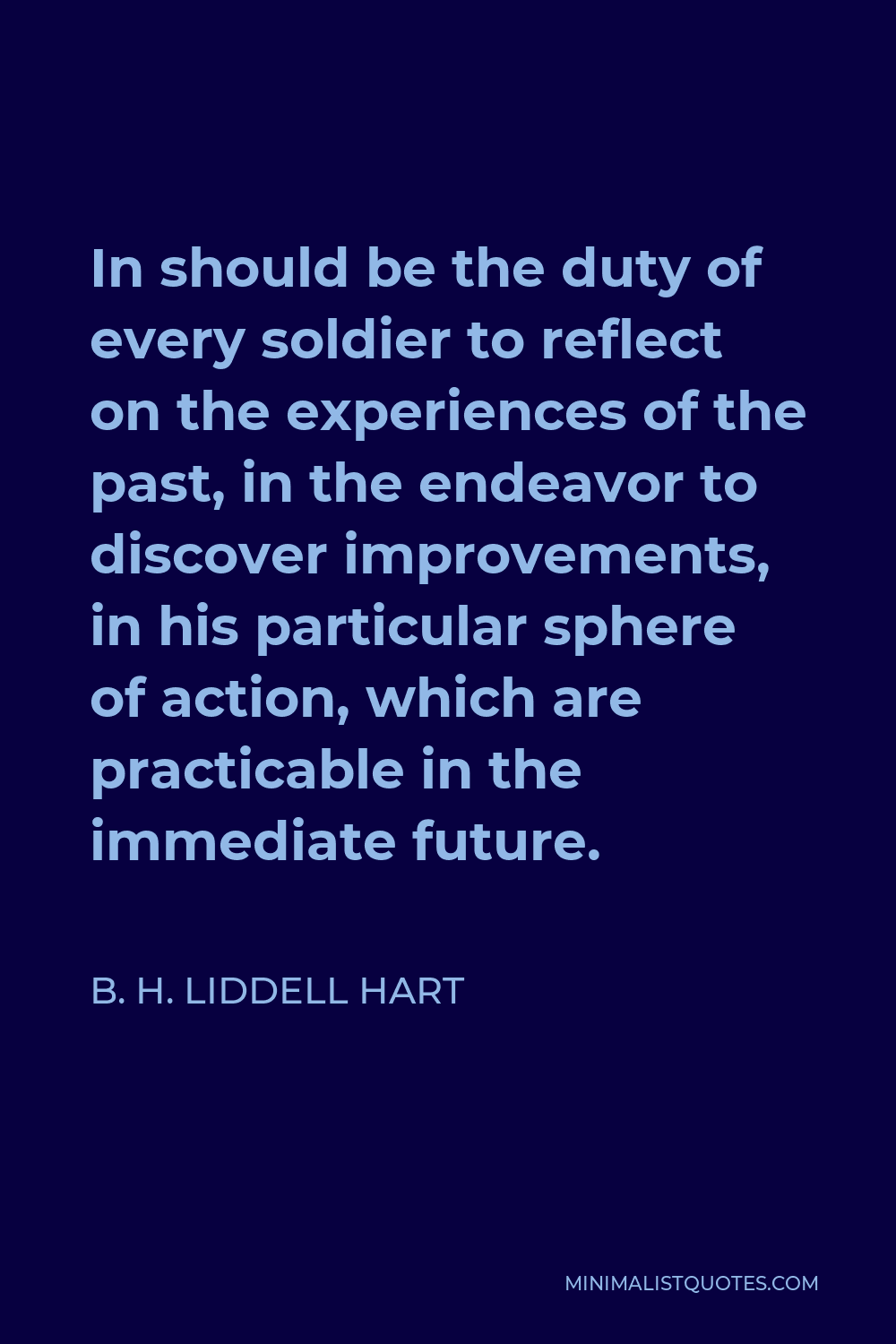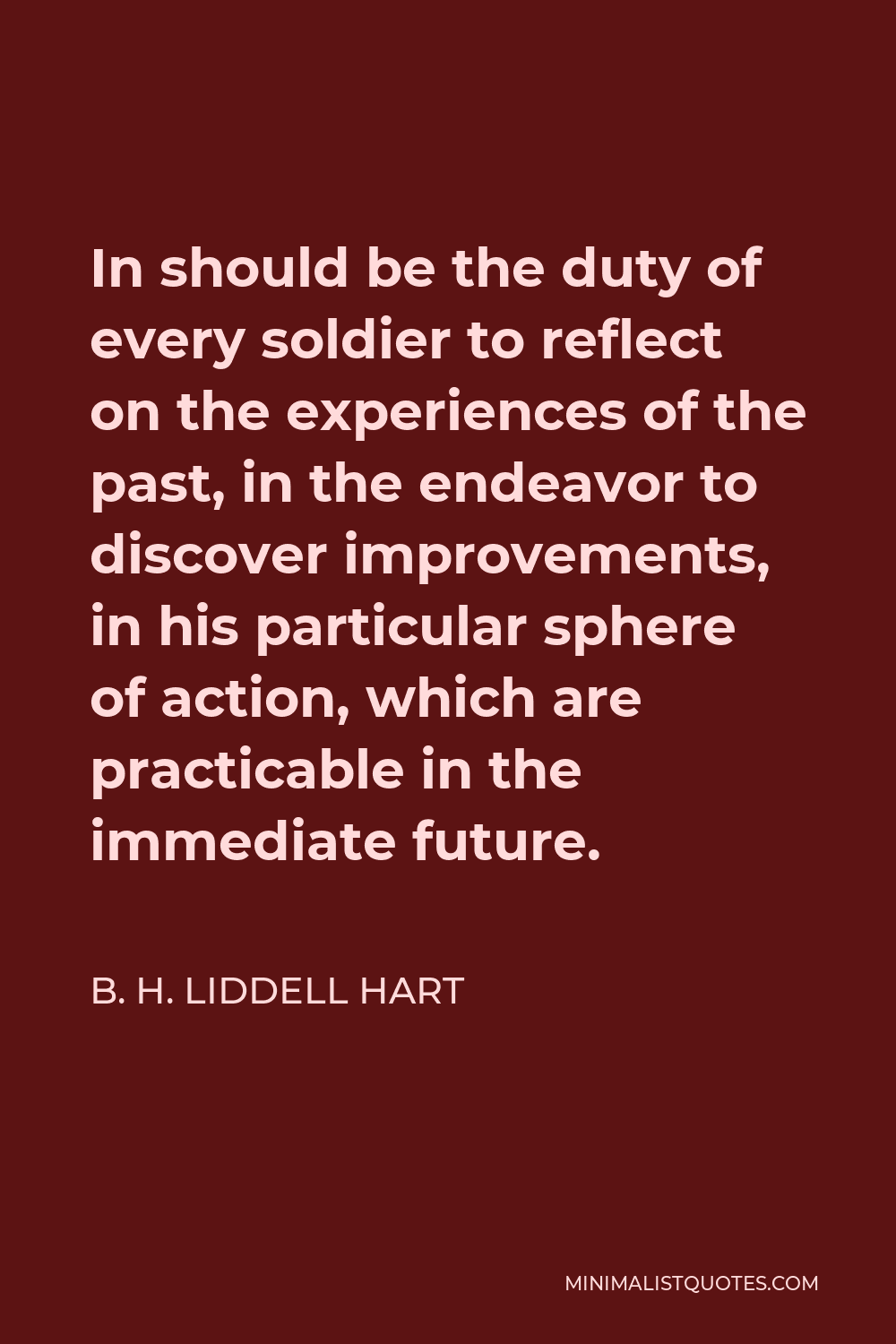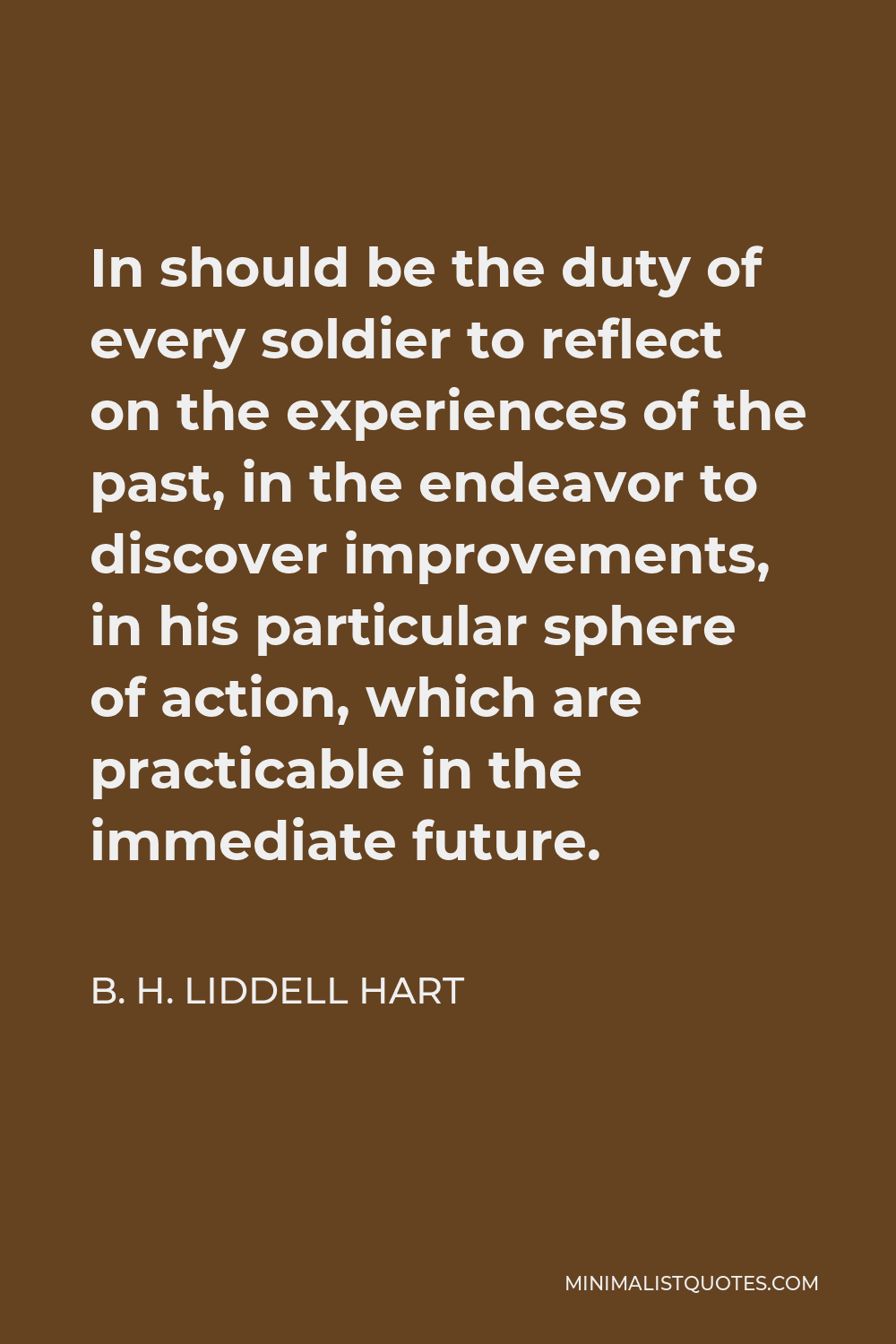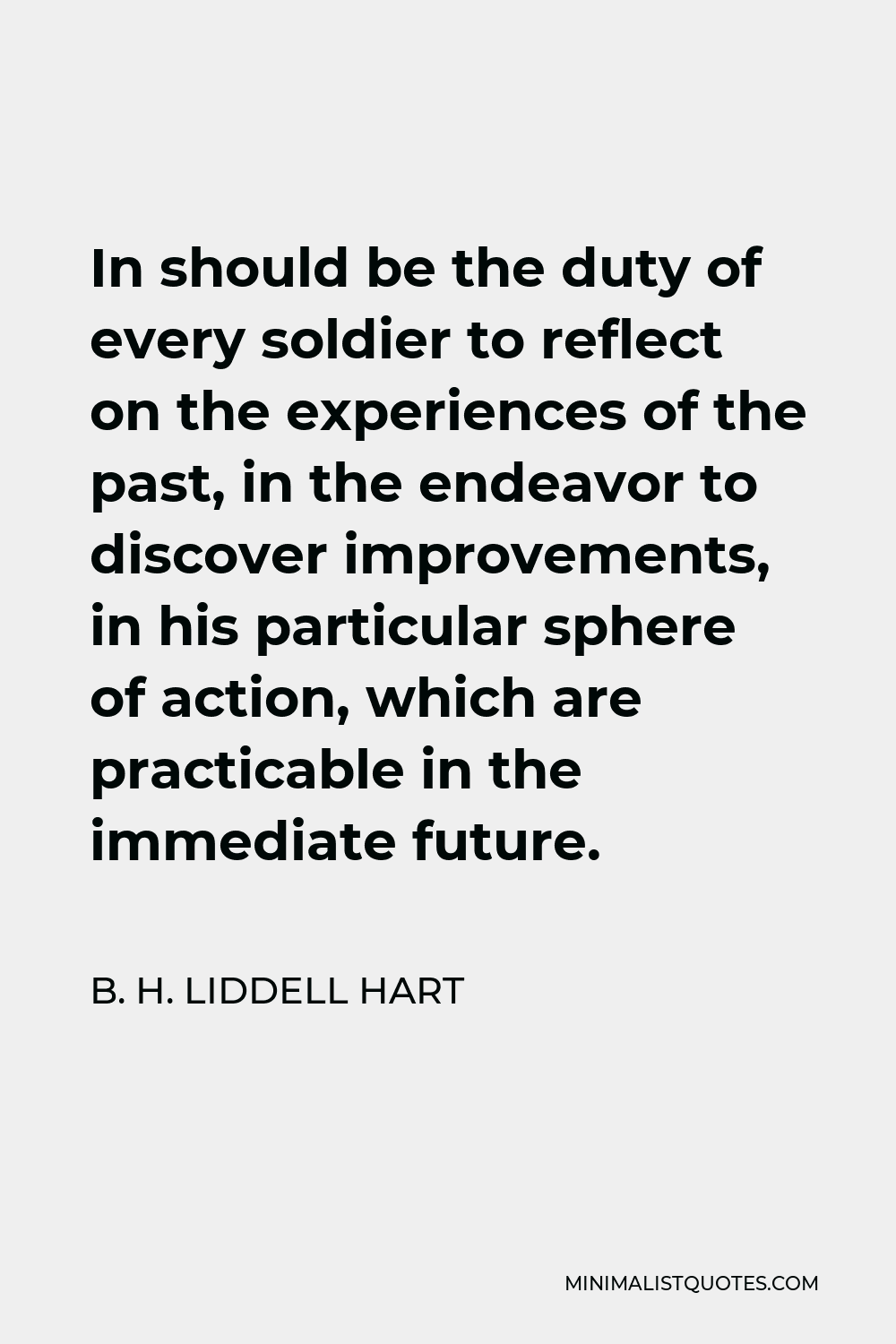If you wish for peace, understand war.
B. H. LIDDELL HARTIn should be the duty of every soldier to reflect on the experiences of the past, in the endeavor to discover improvements, in his particular sphere of action, which are practicable in the immediate future.
More B. H. Liddell Hart Quotes
-





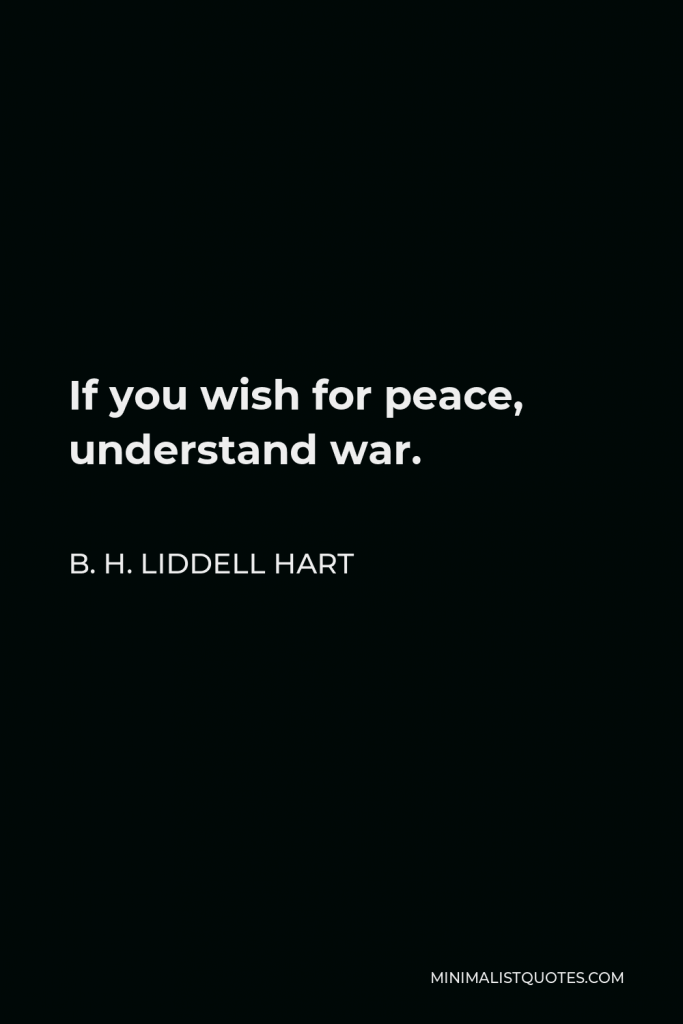

-





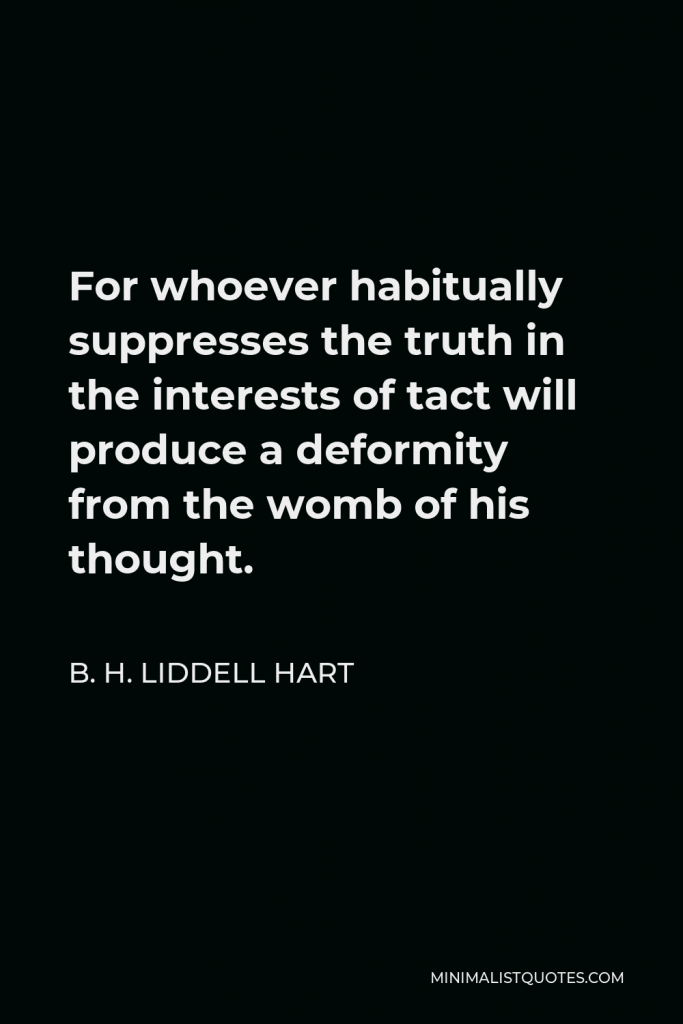

For whoever habitually suppresses the truth in the interests of tact will produce a deformity from the womb of his thought.
B. H. LIDDELL HART -





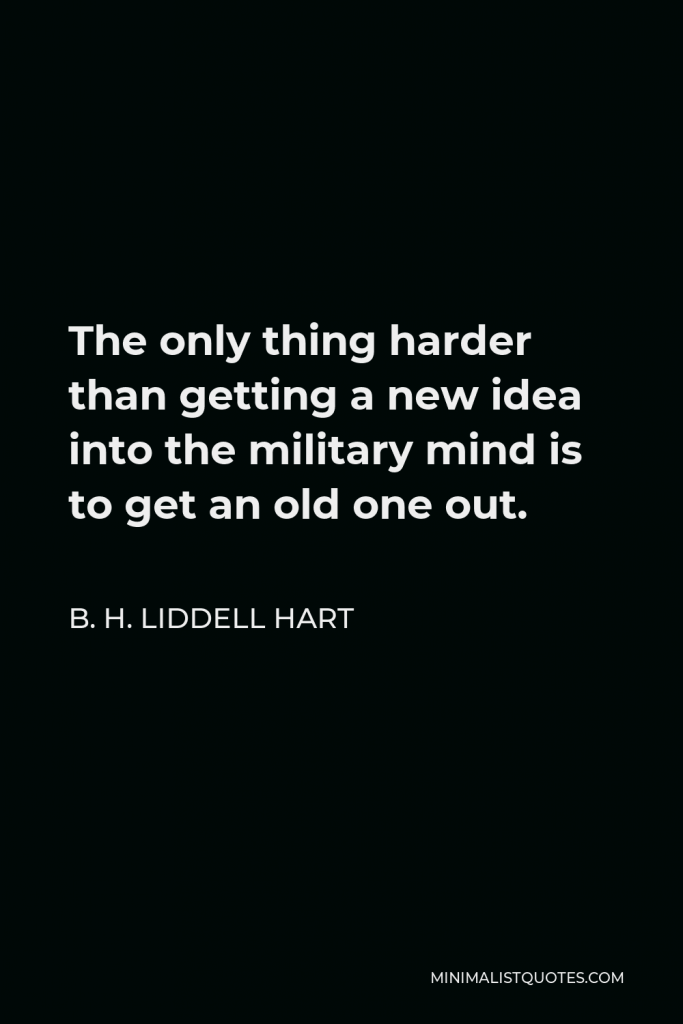

The only thing harder than getting a new idea into the military mind is to get an old one out.
B. H. LIDDELL HART -





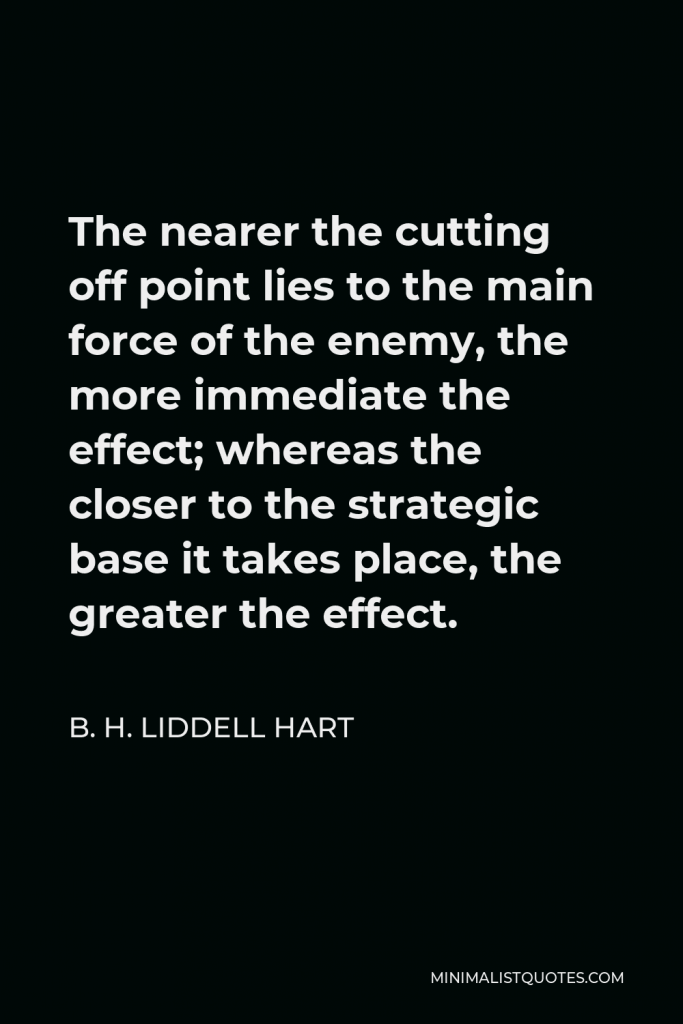

The nearer the cutting off point lies to the main force of the enemy, the more immediate the effect; whereas the closer to the strategic base it takes place, the greater the effect.
B. H. LIDDELL HART -





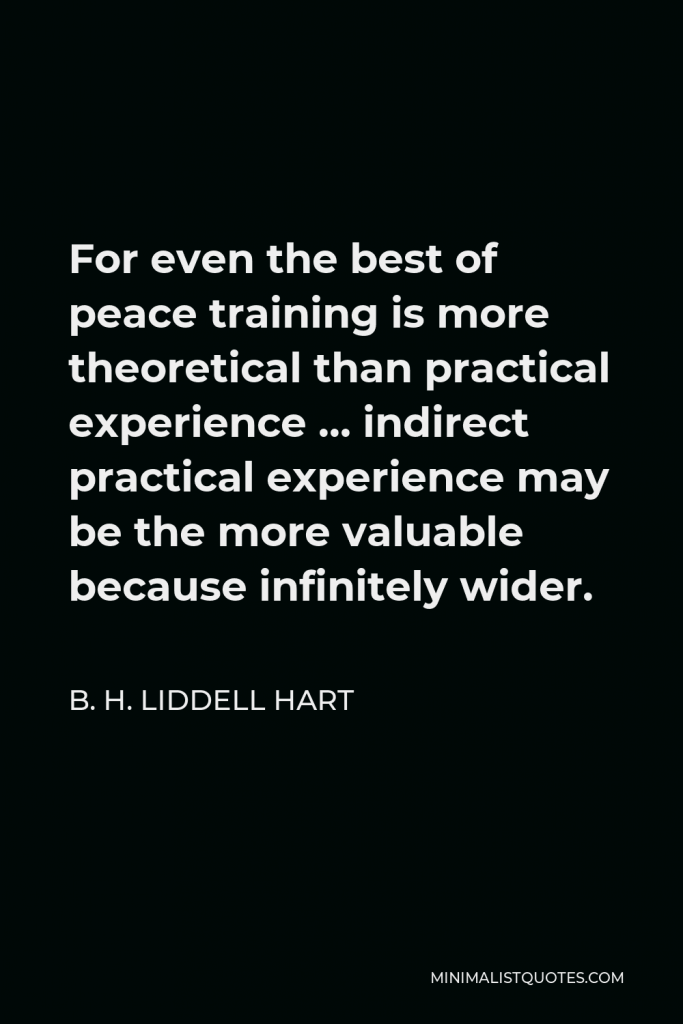

For even the best of peace training is more theoretical than practical experience … indirect practical experience may be the more valuable because infinitely wider.
B. H. LIDDELL HART -





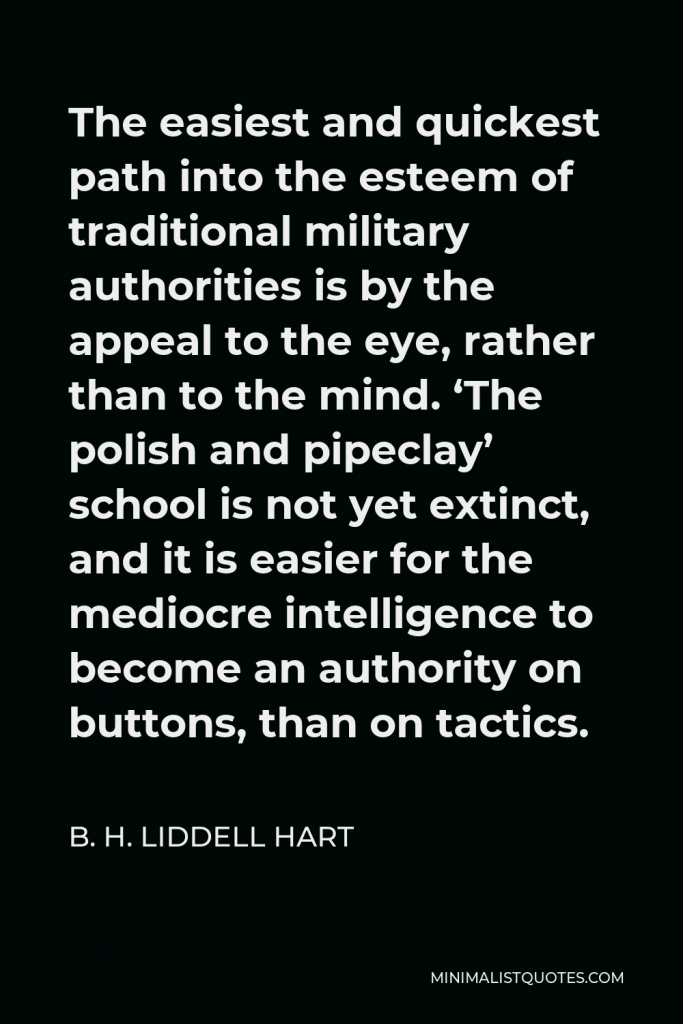

The easiest and quickest path into the esteem of traditional military authorities is by the appeal to the eye, rather than to the mind. ‘The polish and pipeclay’ school is not yet extinct, and it is easier for the mediocre intelligence to become an authority on buttons, than on tactics.
B. H. LIDDELL HART -





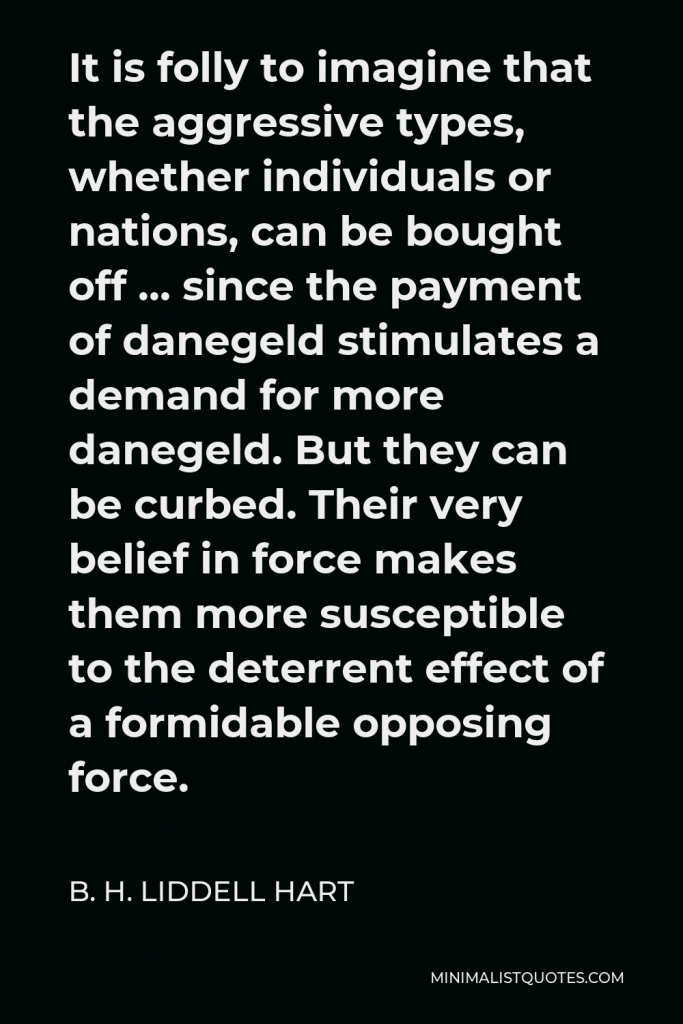

It is folly to imagine that the aggressive types, whether individuals or nations, can be bought off … since the payment of danegeld stimulates a demand for more danegeld. But they can be curbed. Their very belief in force makes them more susceptible to the deterrent effect of a formidable opposing force.
B. H. LIDDELL HART -





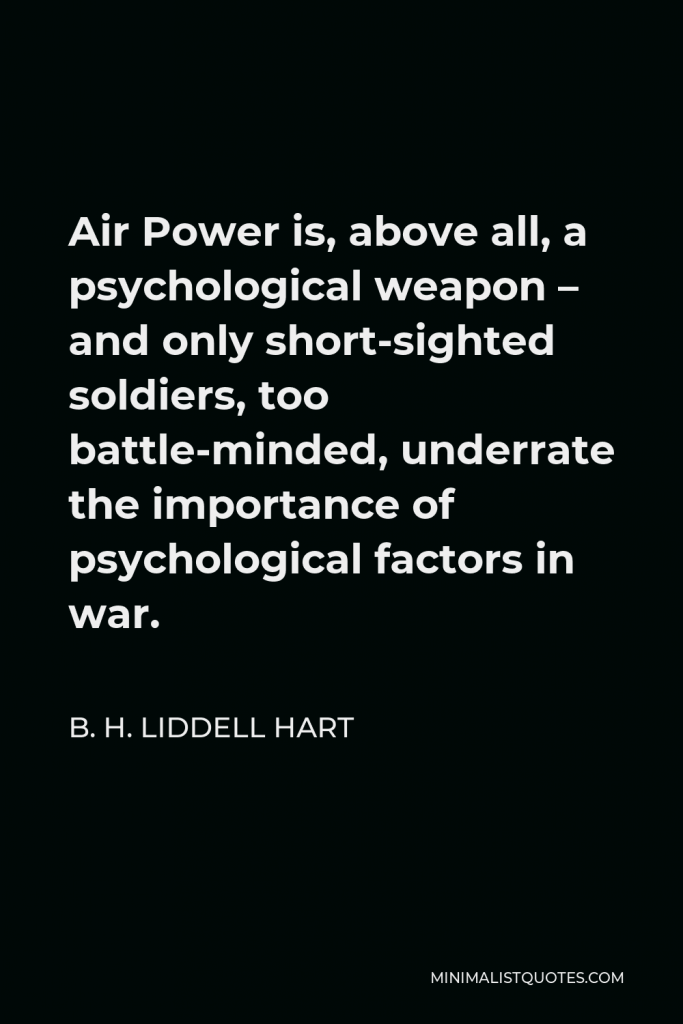

Air Power is, above all, a psychological weapon – and only short-sighted soldiers, too battle-minded, underrate the importance of psychological factors in war.
B. H. LIDDELL HART -





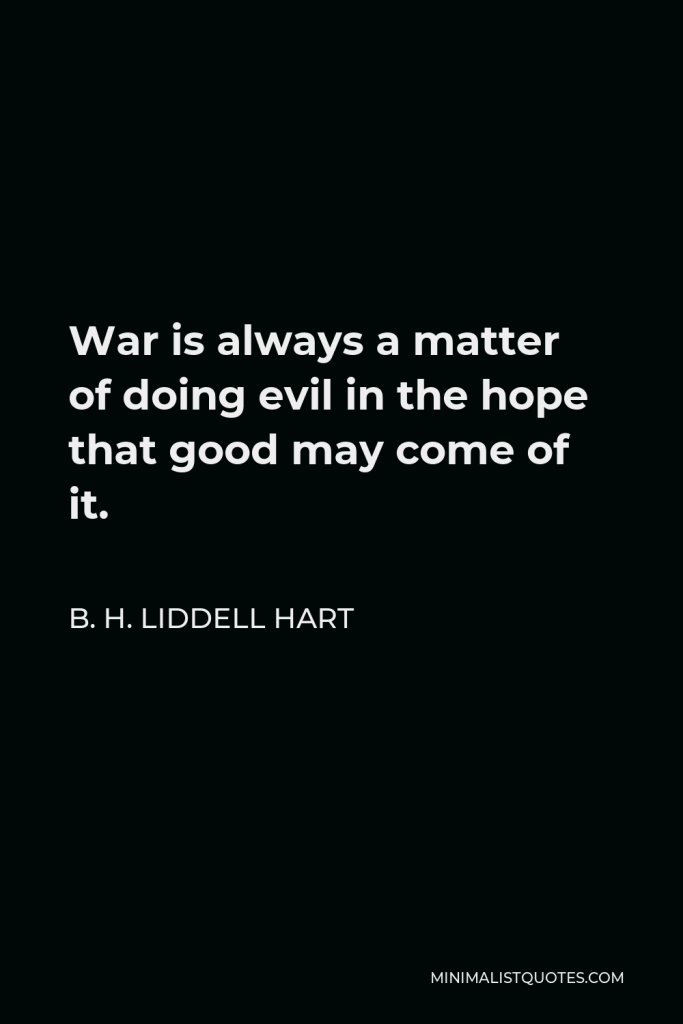

War is always a matter of doing evil in the hope that good may come of it.
B. H. LIDDELL HART -





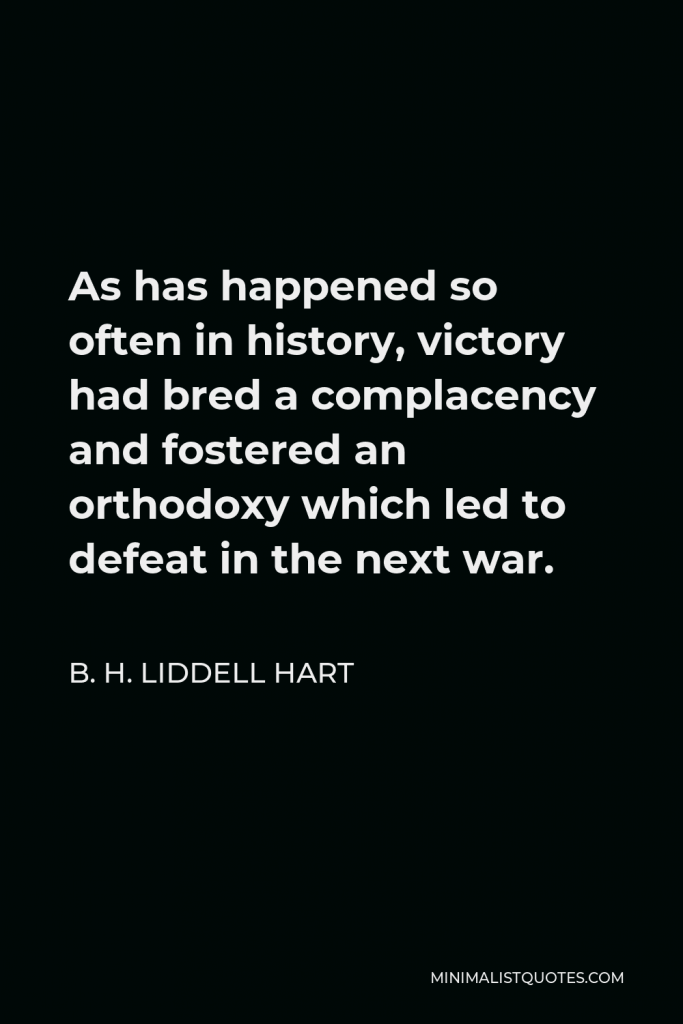

As has happened so often in history, victory had bred a complacency and fostered an orthodoxy which led to defeat in the next war.
B. H. LIDDELL HART -





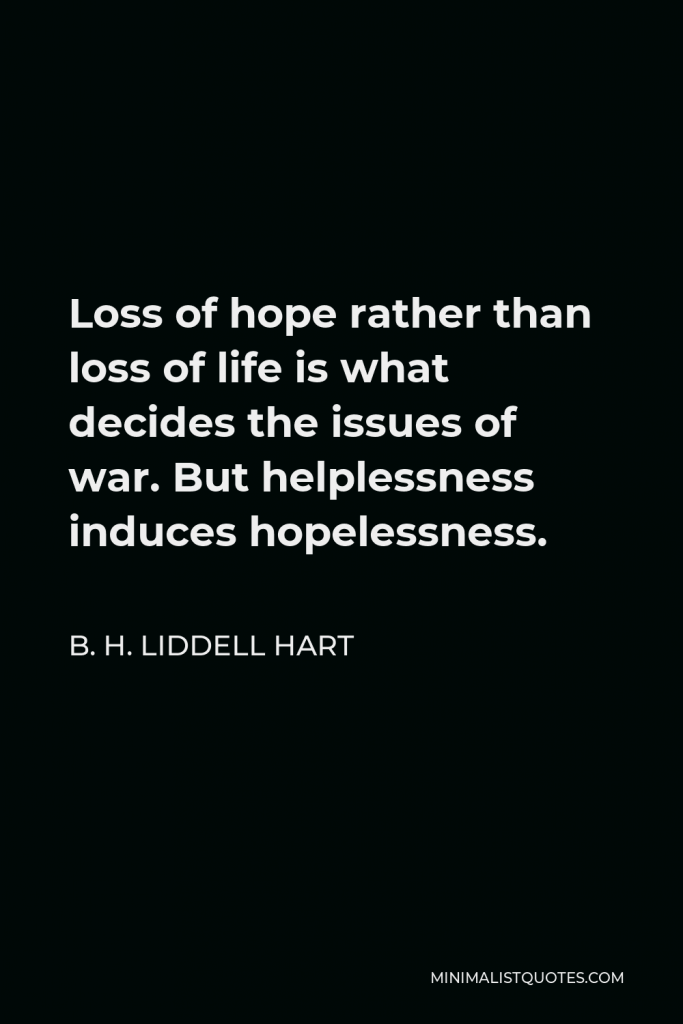

Loss of hope rather than loss of life is what decides the issues of war. But helplessness induces hopelessness.
B. H. LIDDELL HART -





![B. H. Liddell Hart Quote - The more closely [the German army] converged on [Stalingrad], the narrower became their scope for tactical manoeuvre as a lever in loosening resistance. By contrast, the narrowing of the frontage made it easier for the defender to switch his local reserves to any threatened point on the defensive arc.](https://minimalistquotes.com/wp-content/uploads/2022/10/the-more-closely-the-german-army-converged-on-stal-656x1024.jpg)

The more closely [the German army] converged on [Stalingrad], the narrower became their scope for tactical manoeuvre as a lever in loosening resistance. By contrast, the narrowing of the frontage made it easier for the defender to switch his local reserves to any threatened point on the defensive arc.
B. H. LIDDELL HART -





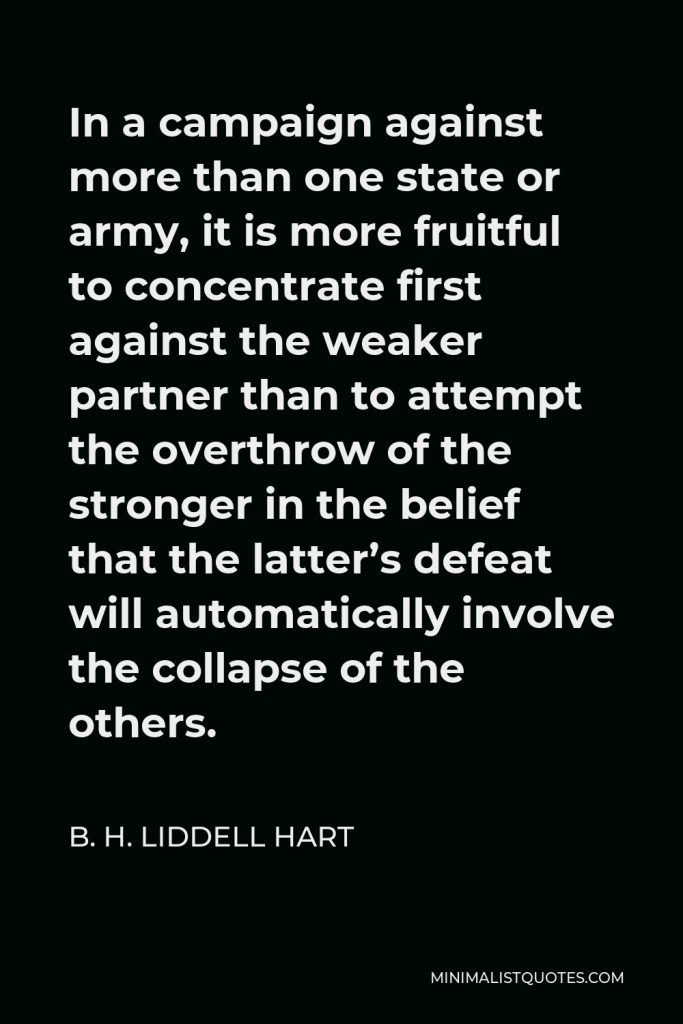

In a campaign against more than one state or army, it is more fruitful to concentrate first against the weaker partner than to attempt the overthrow of the stronger in the belief that the latter’s defeat will automatically involve the collapse of the others.
B. H. LIDDELL HART -





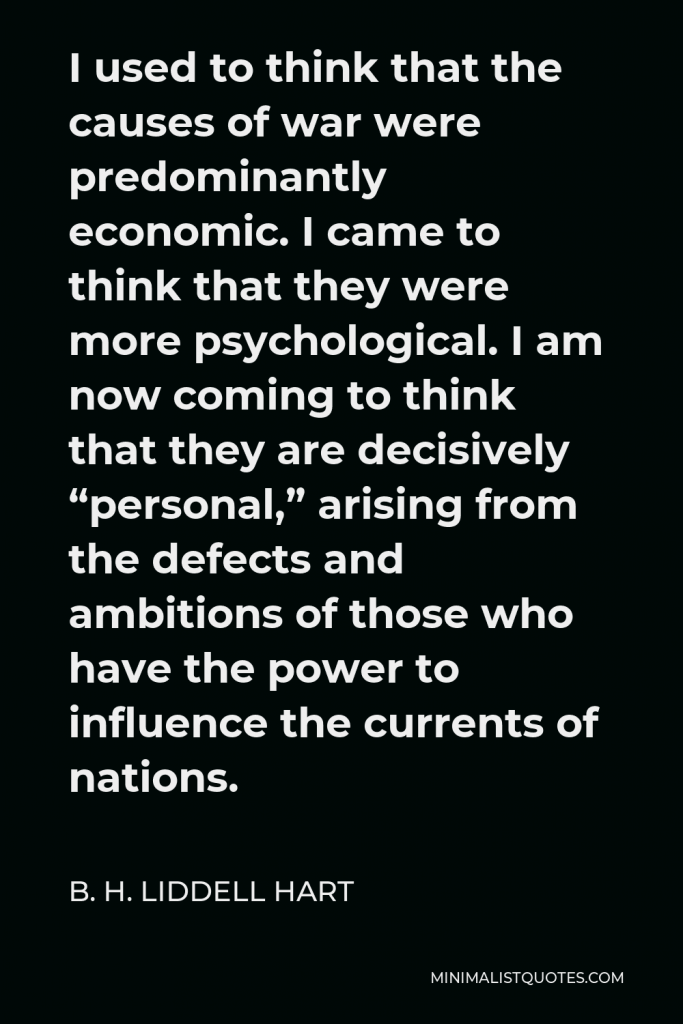

I used to think that the causes of war were predominantly economic. I came to think that they were more psychological. I am now coming to think that they are decisively “personal,” arising from the defects and ambitions of those who have the power to influence the currents of nations.
B. H. LIDDELL HART -





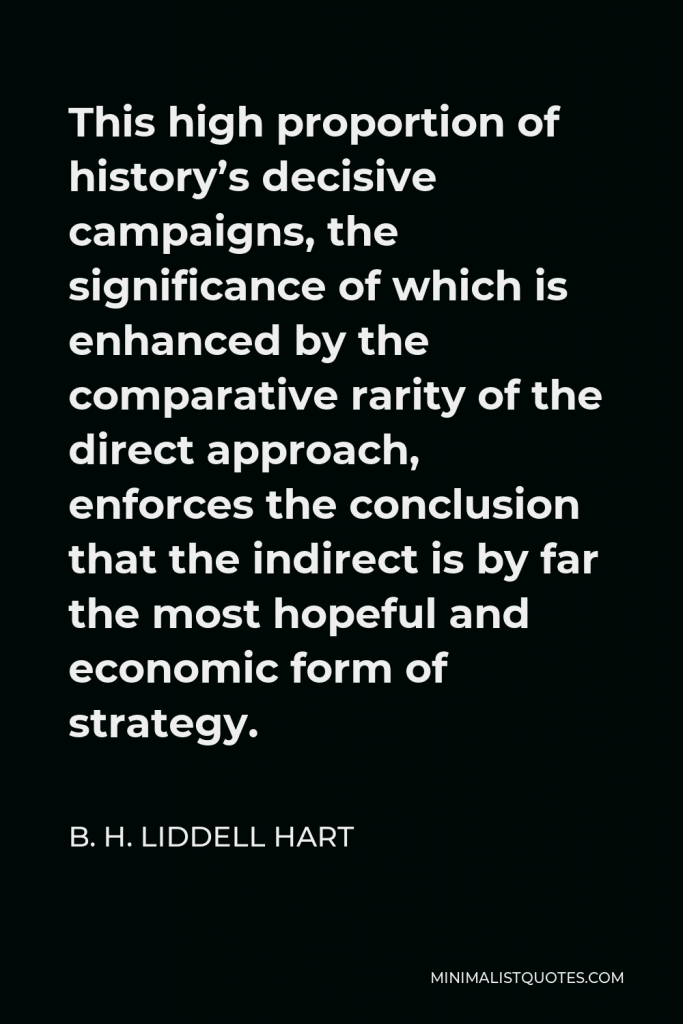

This high proportion of history’s decisive campaigns, the significance of which is enhanced by the comparative rarity of the direct approach, enforces the conclusion that the indirect is by far the most hopeful and economic form of strategy.
B. H. LIDDELL HART -





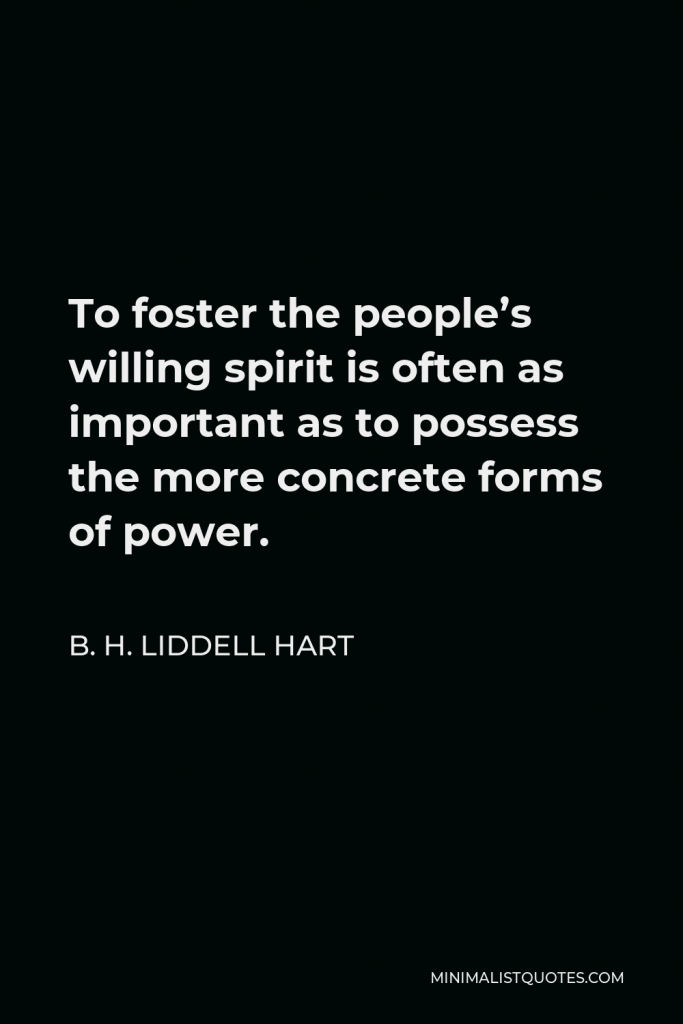

To foster the people’s willing spirit is often as important as to possess the more concrete forms of power.
B. H. LIDDELL HART
